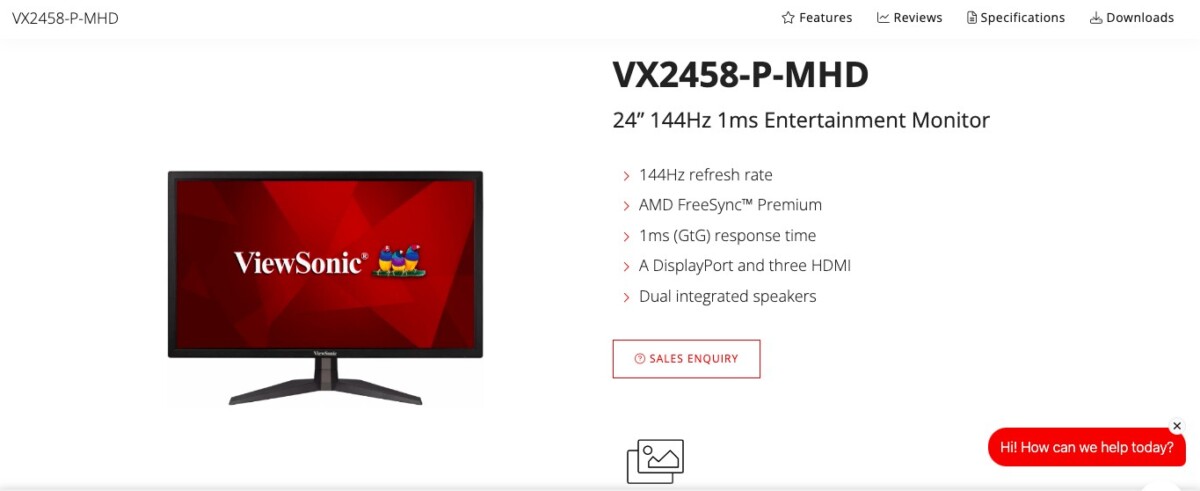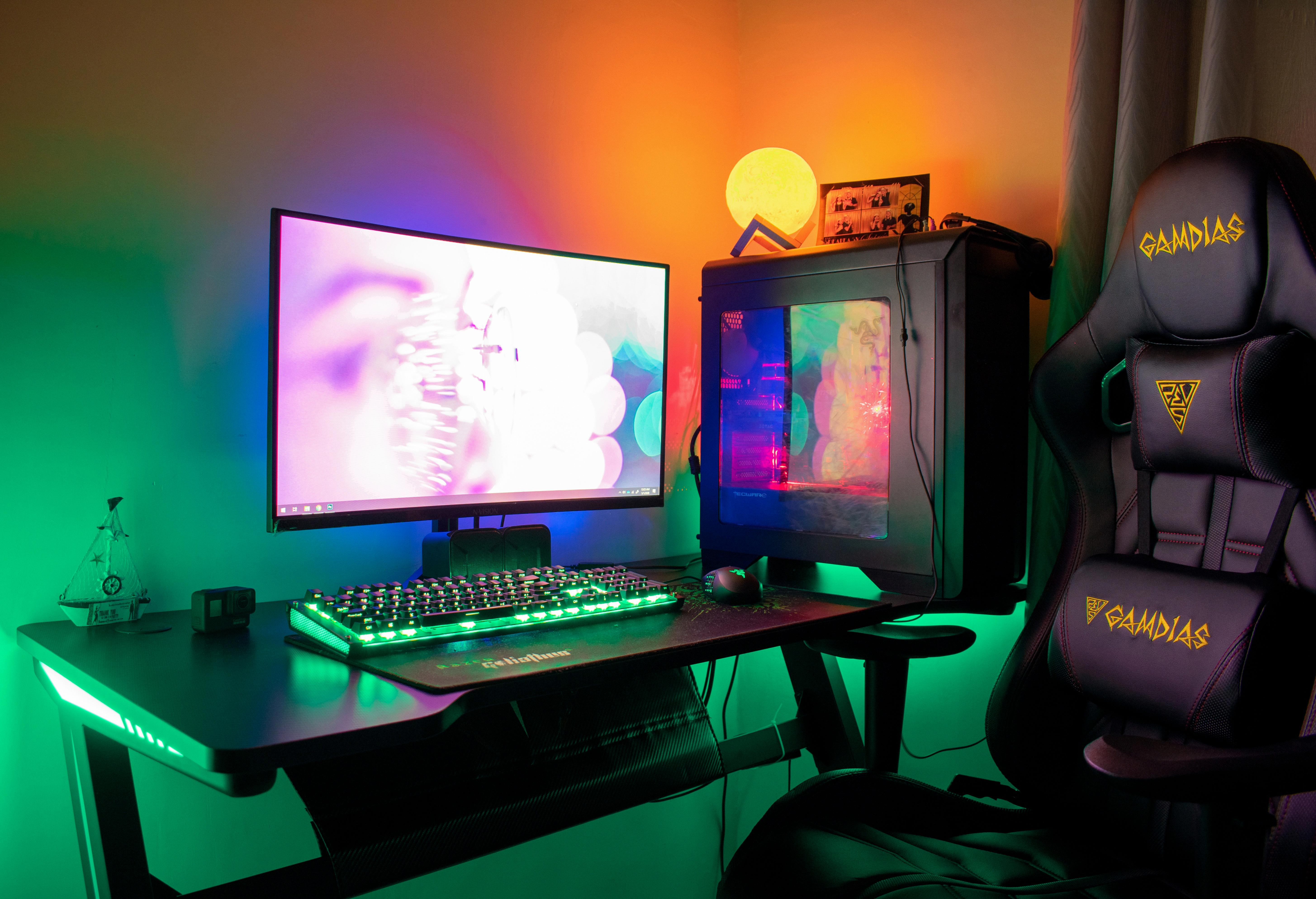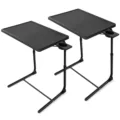
If you’re an avid gamer, a monitor with a high refresh rate will provide the best gaming experience. This is especially important for resource-intensive gaming, such as esports. A gaming TV with 240Hz provides very fast refresh rates, reducing lags and leading to a smoother, immersive gaming experience. In this article, we will be showing you the best 240Hz TVs for gaming, so read on!
What Makes a 240Hz TV Ideal for Gaming?
What are the benefits of 240Hz TVs, and why are they ideal for gaming? One of the top benefits is better motion clarity for gaming, as the higher refresh rates lead to reduced motion blur, promoting seamless gameplay and improved responsiveness. A fast refresh rate for gaming will take your gaming experience to the next level. This is especially true for fast-paced games. Just make sure you have the hardware to support it, such as the latest graphics cards that can support 240Hz).
Top Picks: Best 240Hz TVs for Gaming

So, what are the best TVs for gaming that support a 240Hz refresh rate? Here are the TV models I recommend:
- Samsung Odyssey OLED G8 Gaming Monitor: This gaming monitor features a 240Hz refresh rate and ultra-clear 4K graphics. With 250 nits of brightness and a 0.03ms response time, you’ll get the best of both worlds.
- Dell Alienware AW2723DF: The Dell Alienware AW2723DF offers a refresh rate of 240Hz (280Hz when overclocked). It features an IPS panel and a 1ms response time as well as NanoColor technology.
- LG UltraGear 49-inch Monitor: This LG 240Hz TV for gaming is another personal recommendation of mine. It features a borderless design, an adjustable stand, and VESA DisplayHDR™ 1000 technology.
Features to Look for in a 240Hz Gaming TV
Of course, those are not the only good 240Hz monitors out there. If you prefer to look for a different TV, here are some features of 240Hz gaming TVs to look for.
Generally, you’ll want an OLED rather than a QLED display for gaming, especially if you want faster response times. However, QLED is generally a cheaper display technology. Of course, you’ll also want support for the latest version of HDMI, which is HDMI 2.1. HDMI 2.1 TV benefits include support for 8k video and transfer speeds of 48Gbps.
Ideally, look for a TV with VRR, or a Variable Refresh Rate, which means the refresh rate varies depending on what’s being displayed for optimal performance. ALLM, or Auto Low Latency Mode, is another feature that can improve your gaming experience.
Are True 240Hz TVs Worth It?
But is a 240Hz TV worth it? When comparing 240Hz vs. 120Hz gaming, you will likely notice a small but noticeable difference, especially during high-performance and fast-paced games. The difference is much more noticeable when switching from a 60Hz display.
A true 240Hz TV monitor can allow you to enjoy less motion blur and faster responsiveness. They are also becoming less expensive, so you can find one at a great deal. I would say that yes, it is worth it if you are a heavy PC gamer and want the best gaming experience. If you are only a casual gamer, though, it might not be worth it.
Budget-Friendly Alternatives to 240Hz TVs

If you find that 240Hz TVs are too expensive, and you are having trouble finding affordable 240Hz TVs that fit your budget, why not look into 120Hz TVs for gaming? There are plenty of budget gaming TV options that offer excellent gaming performance. For most gamers, 120Hz is still spectacular.
Here are some excellent options that offer 120Hz or more:
- ViewSonic VX2458-P-MHD (144Hz)
- Acer Predator CG437K (120Hz)
- Gigabyte M28U (144Hz)
Compatible Gaming Consoles and PCs
Unfortunately, getting a 240Hz TV for a PS5 or another gaming console would be overkill, since gaming consoles currently don’t support that refresh rate. If you’re looking for gaming PC compatibility with 240Hz, that’s a different story. A 240Hz monitor is best for gaming PCs, since they can work with 240Hz, while gaming consoles usually only support up to 120Hz.
However, you will need to make sure you have a powerful GPU that can support it. For example, the Nvidia GeForce RTX 4080, 4070 Ti, and 4090 GPUs can support 240Hz. A high-end gaming PC will likely have an appropriate GPU that can handle 240Hz, but double check to make sure.
Conclusion
So, what’s our conclusion on 240Hz TVs for gaming? My verdict is that you can still get the best gaming experience with a 240Hz due to its better motion handling and responsiveness. However, it’s a PC-only standard, so it’s not useful for consoles. However, if you’re a heavy PC gamer, it is well worth it.
We hope you enjoyed our buying guide for gaming TVs. Happy gaming!








